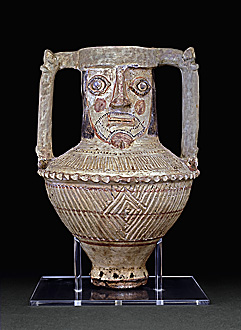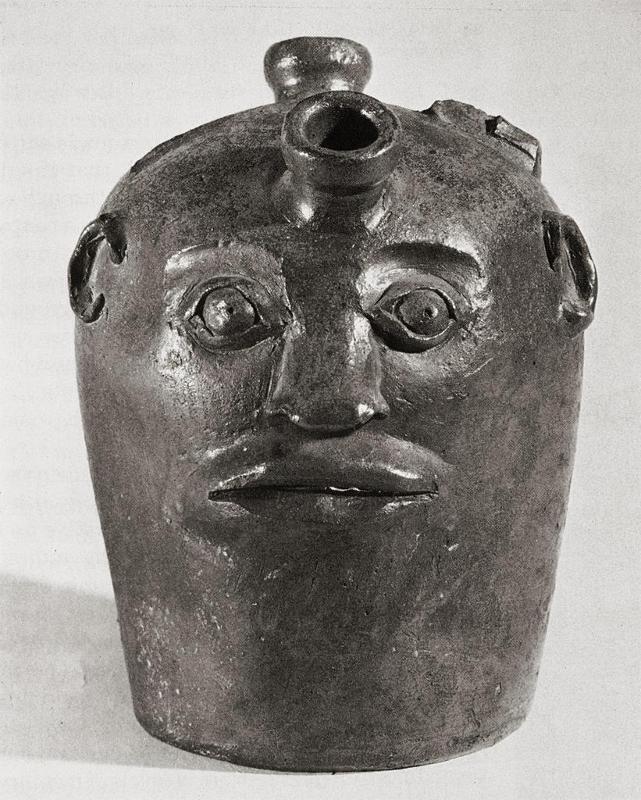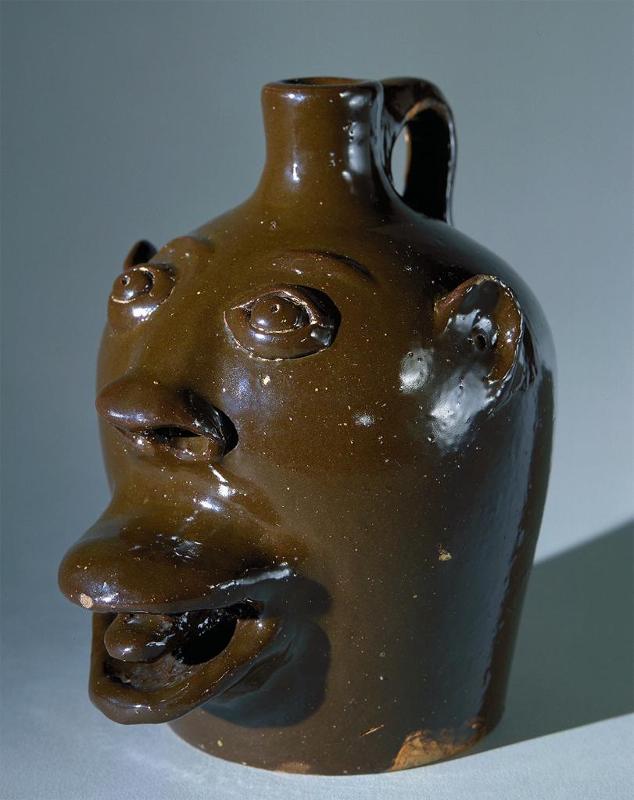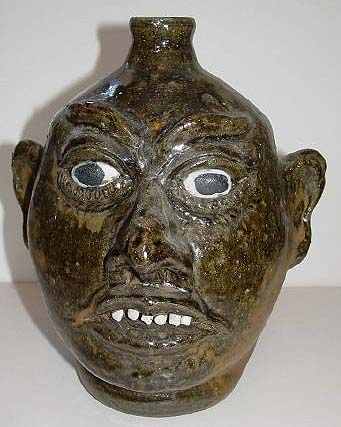
Face Jugs



The tradition of pottery with faces dates back to Egyptian and Mesopotamian times and appears in many other cultures thoughout history. There are conflicting accounts, multiple stories, and varying theories about the 1st face jugs in the US. One account lists an unknown potter in Massachusetts as the creator of the 1st face jug in the US. Another account traces the 1st face jugs in the US to African slaves who worked on American plantations. One theory suggests that these early face jugs were used as grave markers by slaves. These jugs were supposed to ward off evil spirits. A South Carolina potter, who can trace his ancestors to slavery, states that "the idea was that the face jug would be ugly enough to scare the devil away from your grave so your soul could go to heaven."
Though there are many gaps in historical data regarding the making, use, and meaning of the face jug pottery, there is no doubt that the vessels were original, functional artistic expressions of the African slave culture of the time. This all adds to the mystery of possible deeper meaning of the face jugs in the slave culture. Few of the skilled potters who made face jugs have been identified by name and their inspiration for making face vessels is really unknown. Researchers speculate that the vessels may have had religious or burial significance, or that they reflect the complex responses of people attempting to live and maintain their personal identities under cruel and often difficult conditions. Face jugs have been found along the routes of the Underground Railroad and on gravesites, both indicating how highly they were valued and how closely connected they were with the enslaved African American's own culture.



In the early part of the 19th century the form was adopted by white potters. The practice of making face jugs spread thoughout South Carolina and into Georgia, North Carolina and other states. This can be attributed to the downturn in profit for the white potters from the everyday items such as churns and storage jars. This was probably due to the major influx of cheaper mass produced ware being imported from the northern factories. To avoid going out of business the potters started making unique items such as miniatures and face jugs. These items helped to keep the potters from closing down since they appealed to the tourist trade. The purpose of the jugs also evolved. The face jug became known as ugly jugs in the 1920's and was often used to store alcohol. The jugs became uglier in an attempt to identify the contents and frighten children.

There has been a continuum in the interest of face jugs throughout the 20th century primarily centered on two prominent potters, Burlon Craig and Lanier Meaders. However it wasn't until the 1970's when there was an upscale interest in American Folk lore by university academics that the work of Craig and Meaders were exposed to a larger American audience. The popularity of these two potters surged and the face jug as an art form along with interest in its history experienced a renaissance.